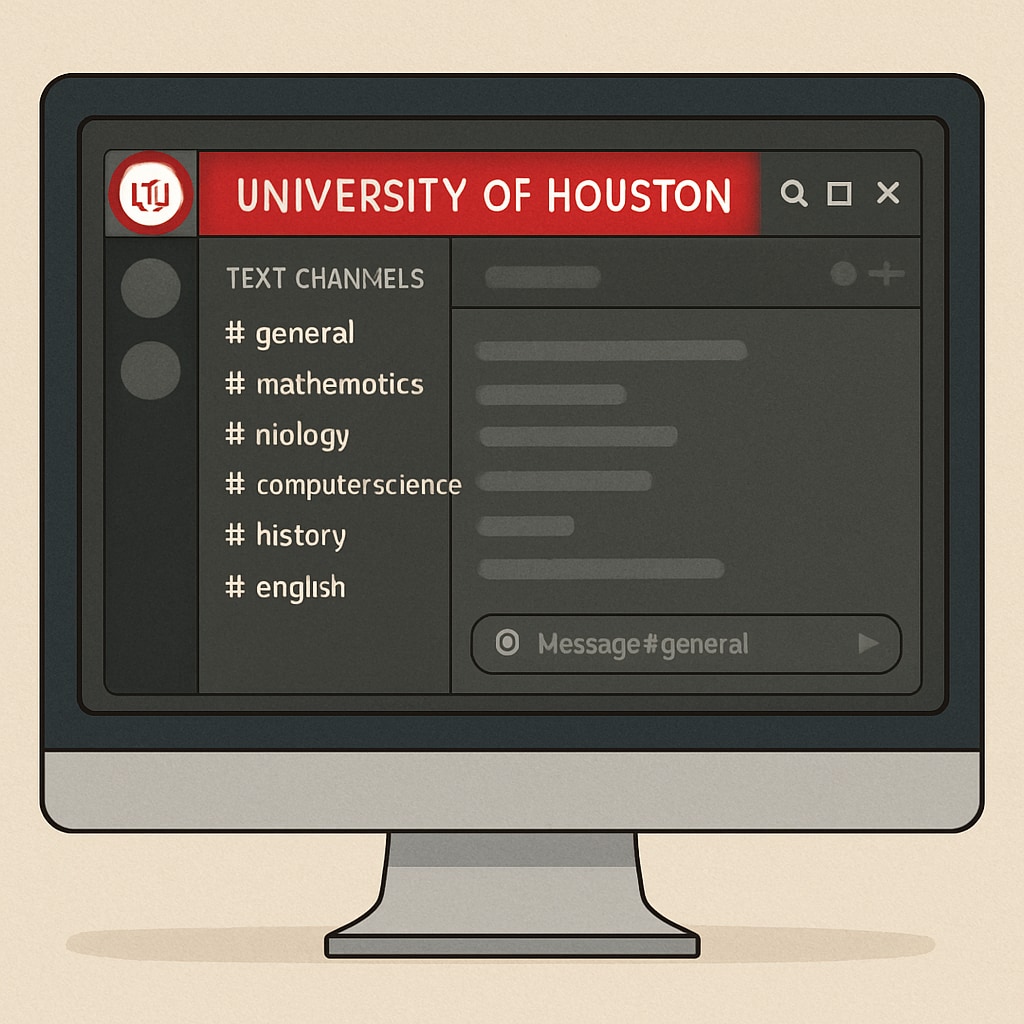At the University of Houston, learning groups, Discord communities, and other study resources are more than just supplemental tools—they’re transformative pillars of academic success. Whether you’re a freshman navigating general education courses or a graduate student tackling specialized research, these communities provide critical support. With the shift from traditional study groups to digital platforms like Discord, students now enjoy greater flexibility and connectivity. Let’s delve into the role of these learning communities, their evolution, and how you can tap into these resources effectively.
The Role of Learning Communities in Academic Success
Learning communities foster collaboration and knowledge-sharing among students who share similar academic goals. By participating in these groups, students benefit from diverse perspectives, improved problem-solving skills, and a network of peers who can offer emotional and academic support. At the University of Houston, these communities exist in various forms, including course-based study groups, departmental workshops, and even informal gatherings.
Research consistently shows that students engaged in learning communities perform better academically. According to a Britannica article on learning communities, these groups create a sense of belonging and accountability that positively impacts academic outcomes. The University of Houston is no exception; its diverse student body thrives on collaboration and mutual learning.

From Study Halls to Discord Servers: The Evolution of Learning Groups
Traditionally, study groups at the University of Houston were organized in libraries or campus lounges. While these settings remain popular, the advent of digital platforms has revolutionized how students connect. Discord, a platform initially designed for gamers, has emerged as a favorite tool for academic collaboration. With its customizable servers, voice channels, and file-sharing capabilities, Discord enables students to create dynamic and interactive learning environments.
For example, many students at the University of Houston use Discord to form course-specific channels where they can discuss assignments, share lecture notes, and even host virtual study sessions. This digital approach has become especially valuable for students balancing coursework with part-time jobs or family responsibilities, as it allows for asynchronous communication and remote participation.
Moreover, the transition to digital platforms has made it easier to include diverse voices in academic discussions. Students who may be hesitant to speak up in a face-to-face setting often find it more comfortable to contribute online, enriching the overall learning experience for everyone involved.

How to Find and Join Learning Communities at the University of Houston
Joining a learning community at the University of Houston is easier than you might think. Here are some practical tips to get started:
- Check with your professors: Many courses have official or unofficial study groups. Professors or teaching assistants can often point you in the right direction.
- Visit the library: The university library often hosts workshops and can connect you with study group opportunities.
- Search social media: Platforms like Facebook and Instagram are home to student groups where you can find peers with similar academic interests.
- Join Discord servers: Many University of Houston students create Discord channels for specific classes or majors. Ask your classmates or search for public links on student forums.
If you’re new to Discord, start by exploring its basic features. Create an account, join a general University of Houston server, and look for subject-specific channels. Be proactive—introduce yourself, share resources, and participate in discussions. Remember, the more you engage, the more you’ll benefit from the community.
Maximizing the Benefits of Learning Communities
Once you’ve joined a learning community, the next step is to make the most of it. Here are some strategies:
- Set clear goals: Whether it’s improving your grades, understanding complex topics, or networking with peers, having clear objectives will keep you focused.
- Be consistent: Regular participation is key. Attend meetings, contribute to discussions, and stay active in digital channels.
- Offer value: Share your own knowledge and resources. A collaborative attitude strengthens the community and enhances mutual learning.
- Seek feedback: Use the group to get constructive feedback on assignments and projects.
Additionally, don’t hesitate to start your own learning group if you identify a gap. For instance, if you’re in a niche major or a specialized course, creating a new Discord server or organizing a study session could attract like-minded students.
In conclusion, whether through traditional study groups or innovative platforms like Discord, learning communities at the University of Houston are invaluable resources for academic and personal growth. By actively participating in these communities, students can unlock new opportunities, overcome challenges, and achieve their academic goals.
Ready to join or create your own learning community? Start exploring today and discover the benefits of collaboration at the University of Houston.


